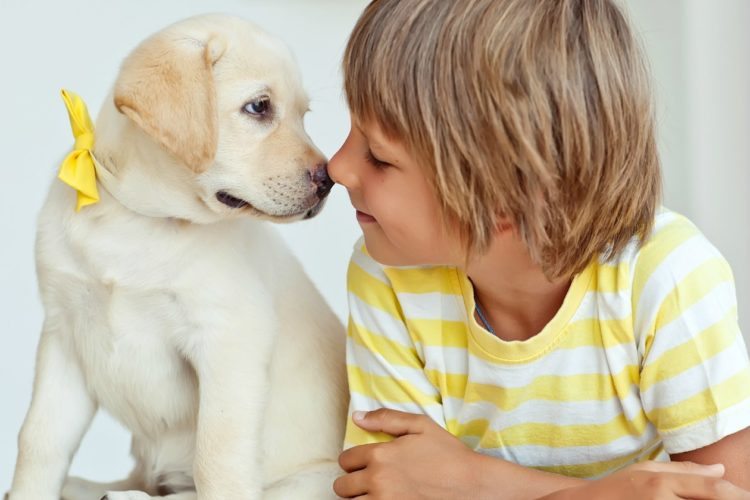Getting a dog can be a big decision. Dogs come with their own responsibilities. This can make it difficult to decide when to introduce a new friend to the family if you have children. Depending on the age and maturity of the child, a dog can make a great addition to the family. With all the regular highs and lows of family life, there are several things to consider before adding a dog to the family. Below is a list of five things to consider before adding a dog to your family.
Is Your Child the Right Age?
It’s okay to get a dog at any age if you are comfortable doing so. Often, having a dog will expose children to pet fur which may reduce their chance of being allergic. The best age to get a dog is the age at which your child understands the importance of taking care of a dog and the responsibilities that come with it. You should be able to verbally communicate to your child right and wrong. This step will be personal to each child since different children mature at different ages and communicate better at a certain age. A median age to start would be between seven through ten; however, children as young as five may be capable of helping take care of a dog as well. If there are more children in the home, the responsibilities can be shared. Depending on how old the oldest child is, you may be able to get a dog even if the youngest is under five years of age.
How Old Is the Dog?
Dogs can come into the home in several ways like adoption, gift, pet stores, etc. Some dogs from shelters can be older. It is important to understand the age and health of the dog so you know if your family will be able to handle the responsibility of the dog’s needs. For example, French Bulldog health problems might be a bit too much to handle.
Dogs can live between ten to fourteen years. If the dog is already seven years old, it’s a little more than halfway to the end of its life span. When adopting from the pound, it’s hard to know a dog’s age; however, it is usually less expensive. For many people, it’s more ethical. Provided is a very short list of places to adopt a dog.
- Animal shelters or the pound
- Online
- Pet stores
- Unwanted pets from family or friends
What a Dog Can Bring to the Family
Dogs can bring a lot of joy to the family. They can be very pleasant to come home to after school or work. Often dogs are very cheerful and happy to see you. Dogs can teach children responsibility and help with development. The New York Times says children with dogs have a higher psychological development.
Dogs can be fun and playful as well as protective and stoic when needed. Either way, having a dog can be life-changing for you and your child. Younger dogs can be a lot more work for the first two years of life and unneutered dogs can be rowdier. However, having a dog when it is young will give your family more time to grow with the dog and watch them build their character.
Is Your Child Ready?
As discussed before, a certain age can be a factor for when to get a dog; however, some children with developmental issues may have to wait longer to have a dog. If your child is ready, you should be able to verbally communicate to them and they should be able to understand. If your child is still working on communication, its important to understand that you will have more responsibility for the dog. If the dog is for your child and you want them to be able to take care of the dog on their own, it’s important to build that communication beforehand.
What Is the Best Dog Type?
Depending on where you live and your family size and needs, the best dog can depend on the breed and size. Smaller dogs are a great option since they can travel and move more frequently. Bigger dogs are hard to move, but they are fantastic as protective dogs. Bigger dogs are great for activities, as guard dogs, or as service dogs. Small dogs can be service dogs as well. Small dogs are great for being inside dogs; they will still need a doggy door. A smaller dog will need a smaller doggy door, which is safer since children can climb through large dog doors. The breed of the dog depends on if you want a rowdy dog that is small, or large and active, or if you want a cuddly relaxed dog. Often some dogs can be different from their breed, so it’s good to meet the dog in person before making a decision.
Picking a dog is very exciting. Since this companion will be in the family for a long time, it’s important to make the best decision for the long term. Allow your kids to be part of the adoption process so they feel more connected to the choice. Older dogs can be wiser and still playful. Younger dogs can be fun and still learn responsibility. How a dog acts will very much depend on the way they are cared for and accepted into the family.











